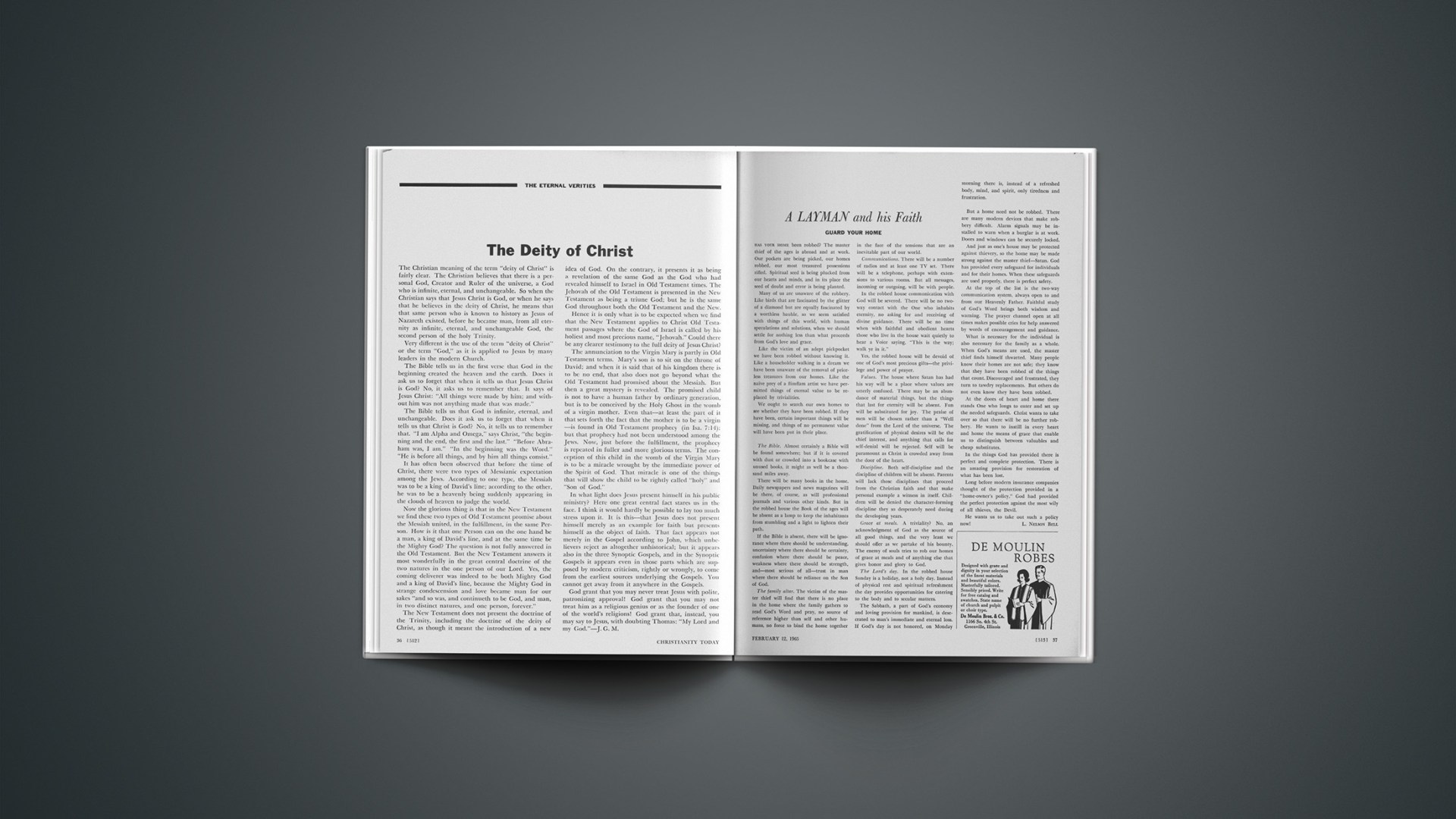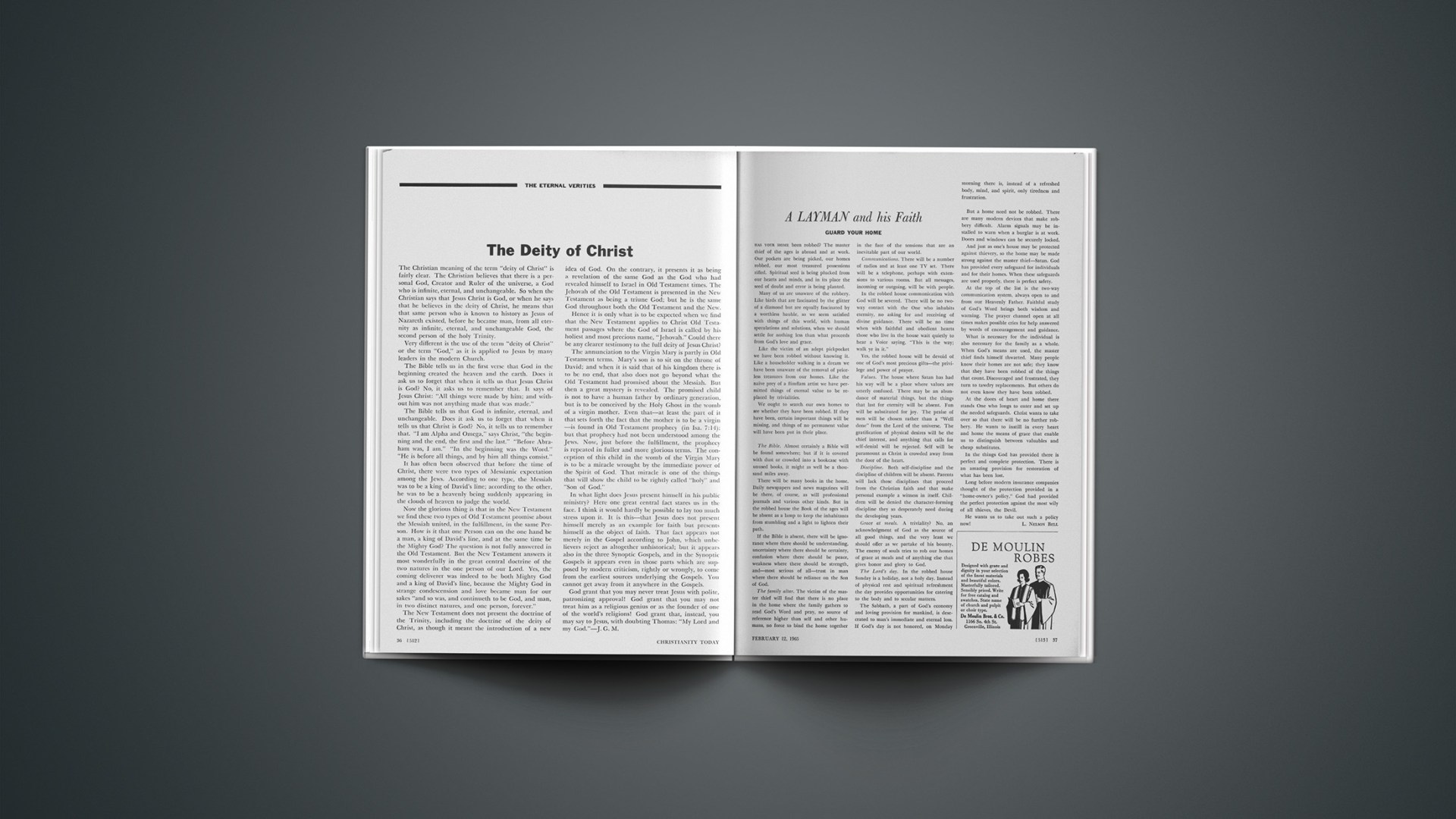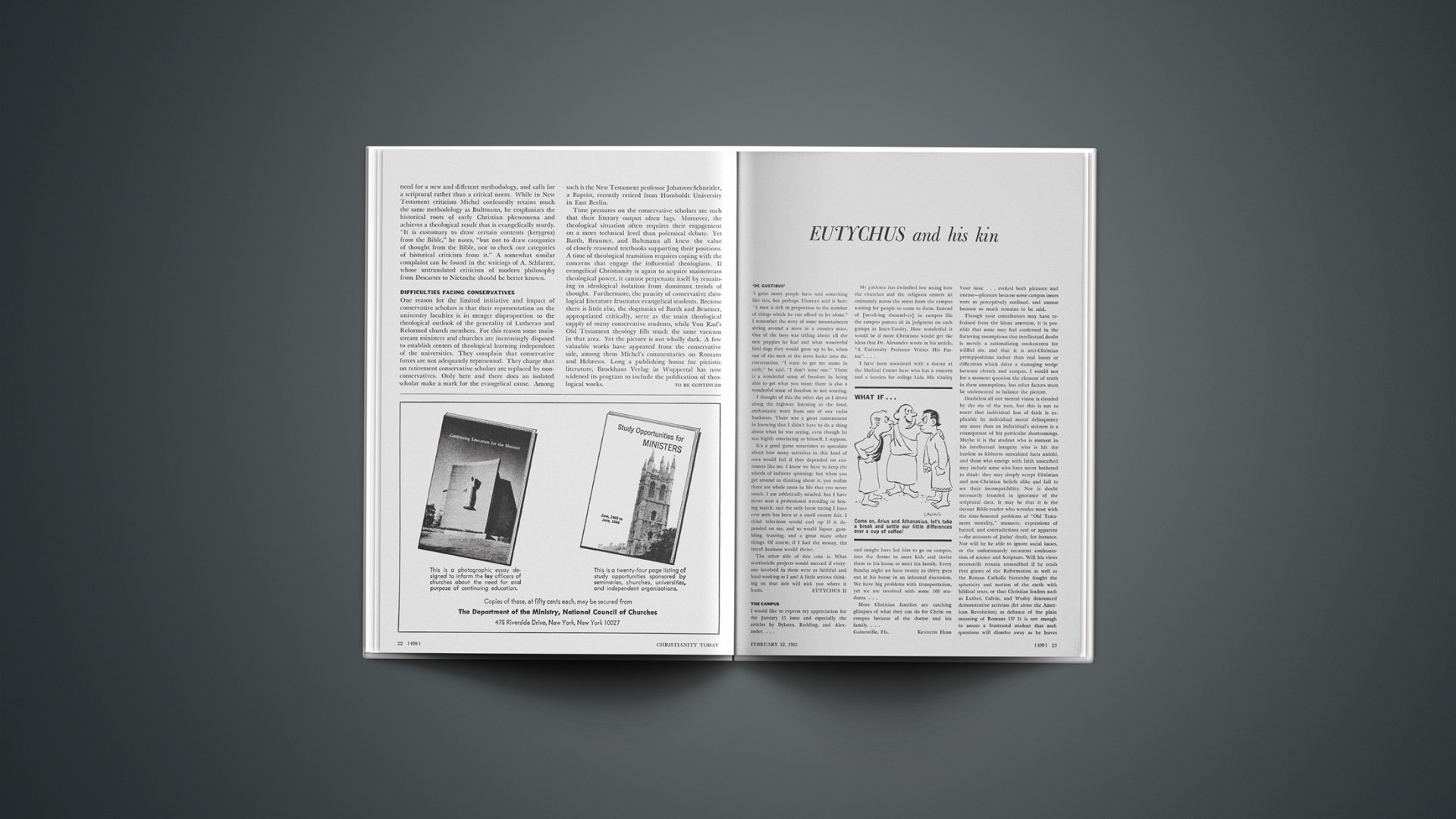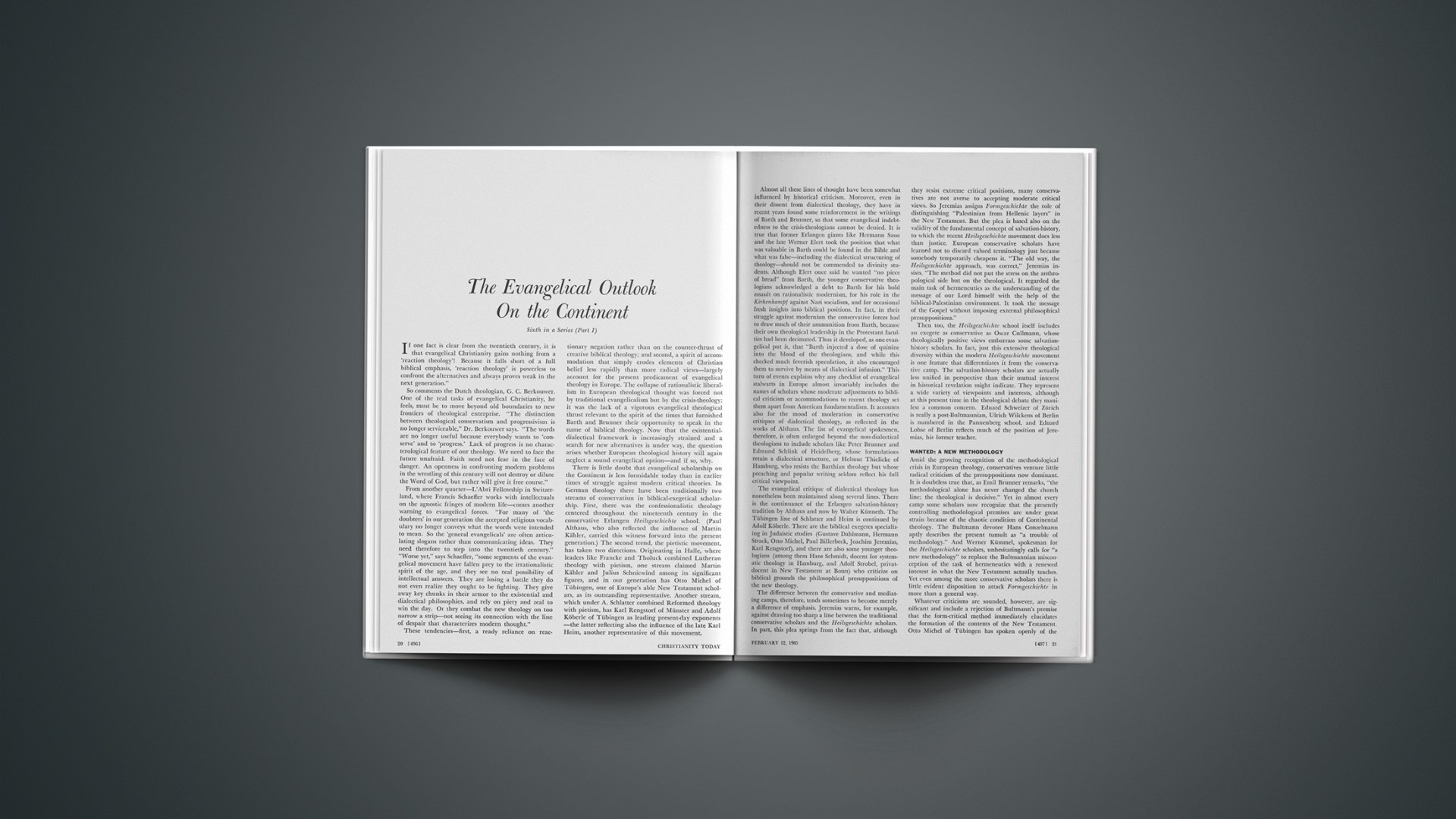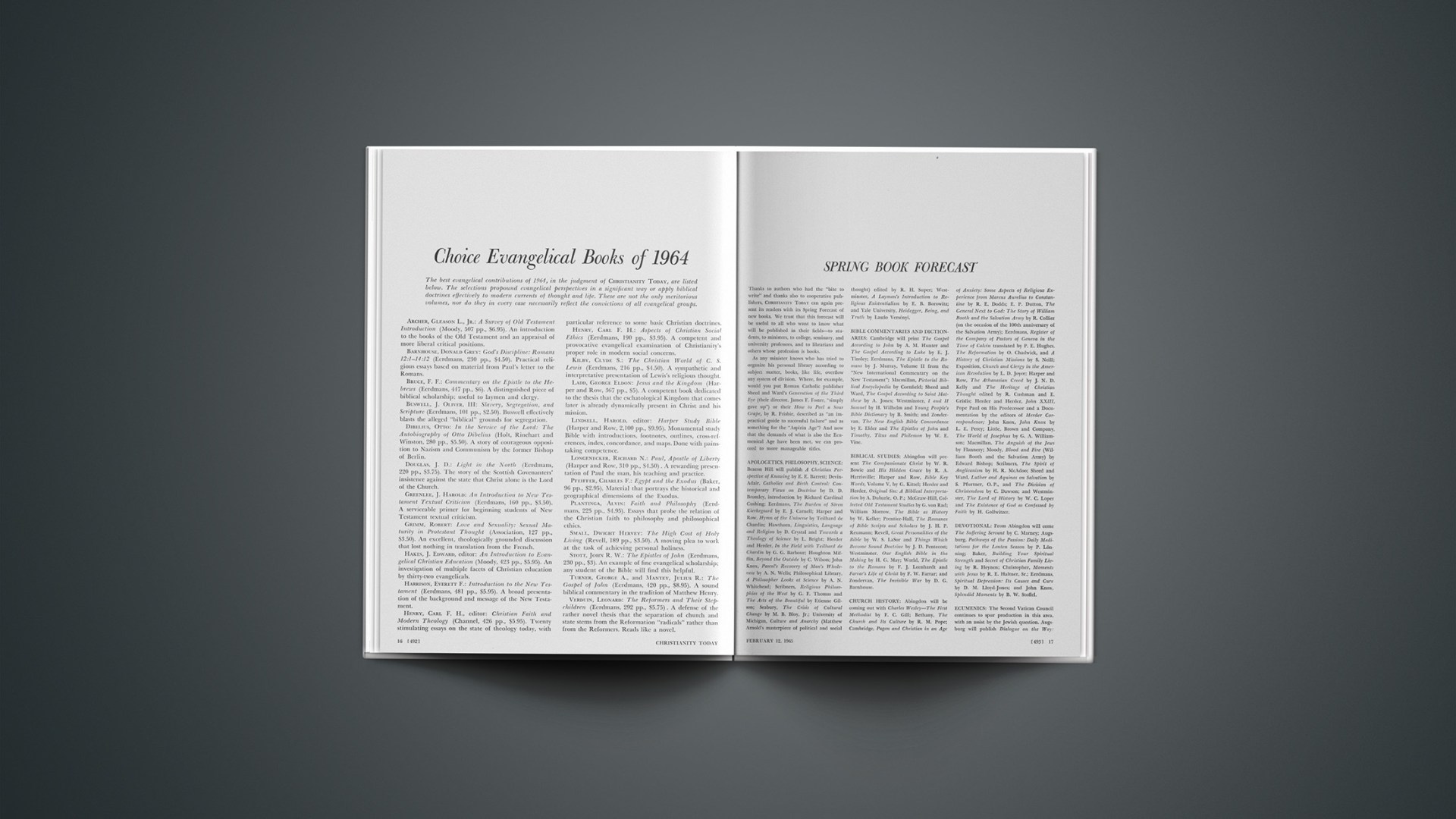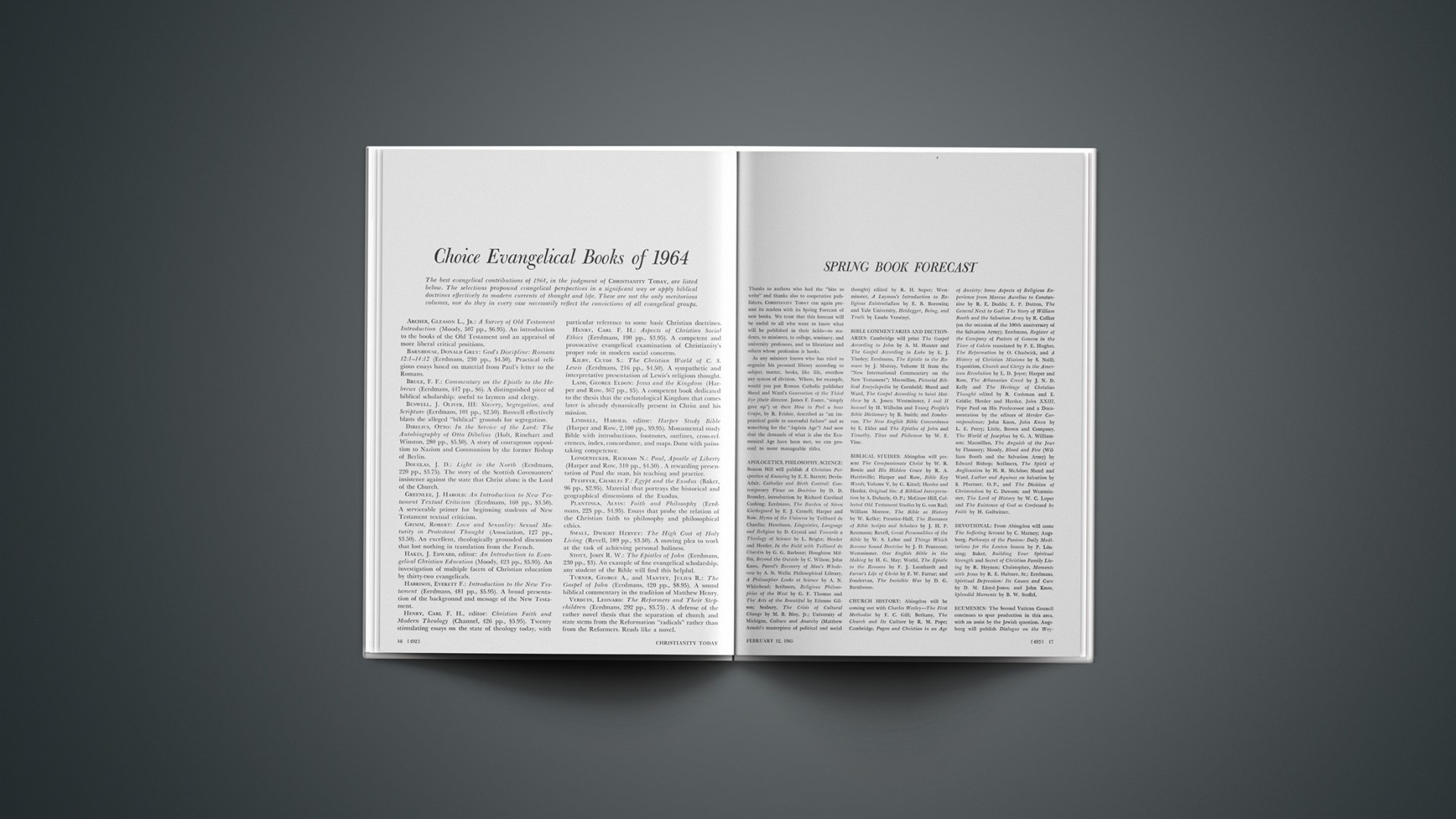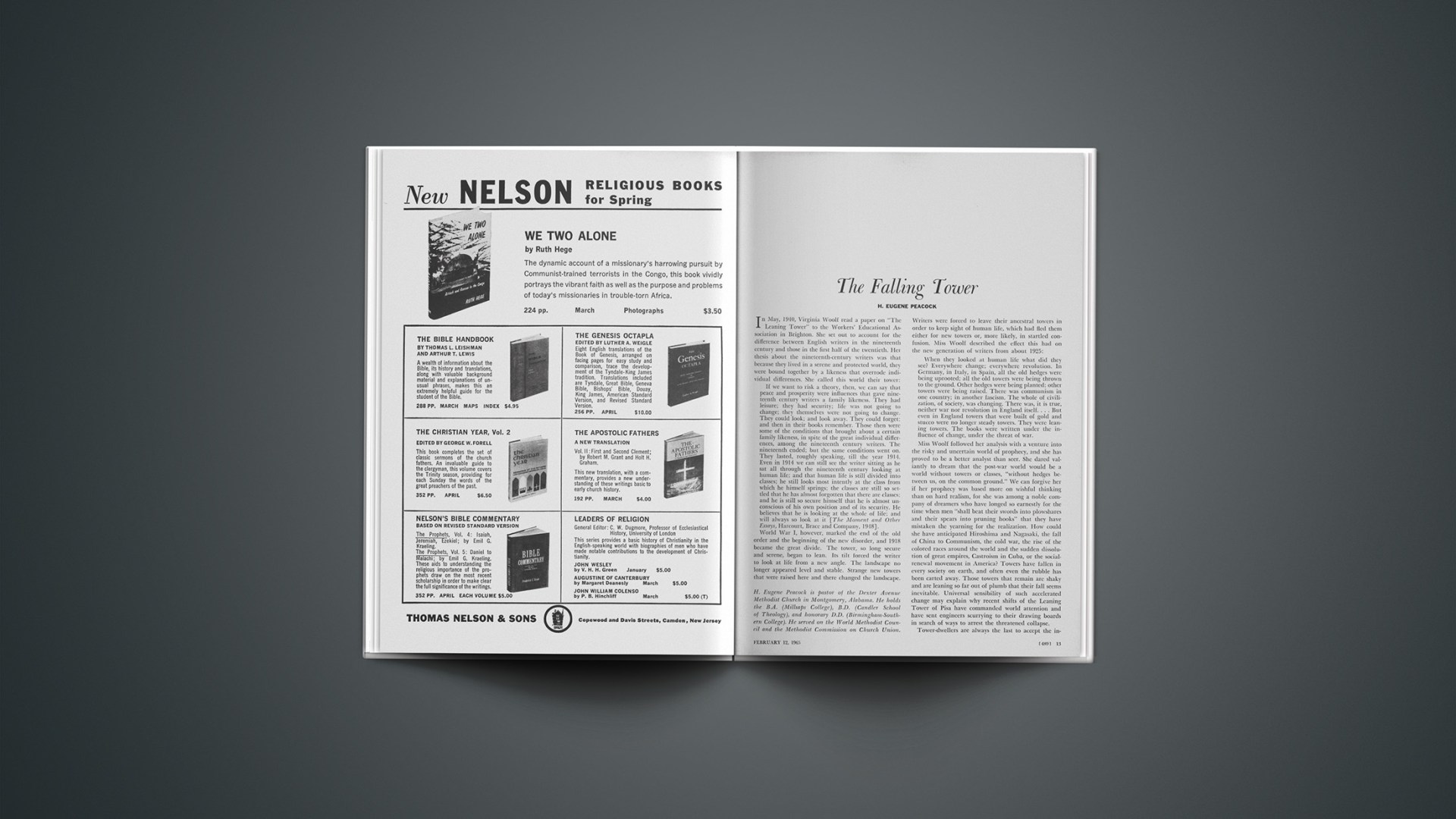This spring book issue evaluates the flood of religious books that appeared in 1964 and looks forward to 1965 publications. An editorial (page 32) discusses the reading habits of ministers.
The pastor of a Methodist church in Montgomery, Alabama, analyzes the changing order in the South and the reactions to it in the minds of whites as well as Negroes. See “The Falling Tower,” page 13.



